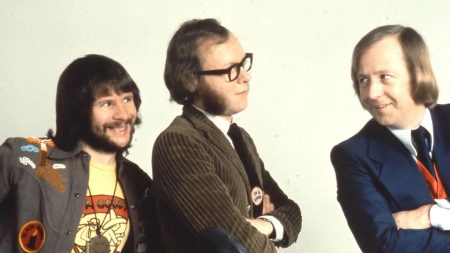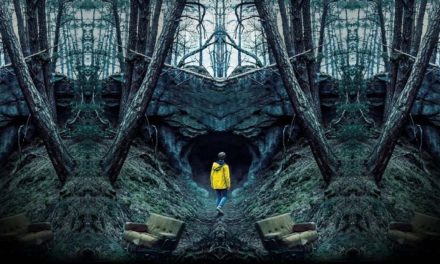The television scholar Alan McKee once asked the rhetorical question ‘is Doctor Who Australian?’, a question he immediately pondered may be a stupid one as everything about the program (cast, writers, place of production, as well as many themes) were so emphatically British. The question though, is a perfectly sensible one, and was meant in terms of audience, reception, and impact. If British film and television historians look beyond their immediate context, the familiar suddenly comes into view in new and even exciting ways. Doctor Who is a quintessential Saturday evening viewing experience, say the history books. Oh no, Doctor Who was watched after school on weekday afternoons. The show was in a line-up with Juke Box Jury and Grandstand? Why no, it was in a line-up with Monkey and Gumbie. That at least is how I, and others of my age, encountered these shows on Australian television, in different contexts, and as different viewing experiences from the dominant narratives.
The viewing experience of Doctor Who outside of Britain is a bit more than just seeing a British show on an Australian screen. McKee’s question resonates with other British programs, and the tragic death this week of Tim Brooke-Taylor from Corona virus was upsetting for the many Australians who became fans of his during a time when repeats of The Goodies seemed to be a never ending after-school viewing experience for children in the 1980s and up to the 1990s. The Goodies was part of that unbeatable Australian line up of after school television on Channel 2 (the ABC) (did we never have homework?). When does the British show watched in another became part of the cultural fabric? When does Doctor Who become Australian, in terms of taking on a distinctive life in a new context as a viewing experience, as a fan commodity, as a school ground talking point? Did The Goodies likewise become Australian, as something experienced by a particular audience, in a particular context of viewing pleasure of an eclectic line-up (Australian, American, British and Japanese), arbitrarily assembled but forming a distinctive texture of a childhood experience.
Likewise this week, I saw on Twitter how Brooke-Taylor’s death ignited the memories and prompted the sadness of people rather like me, who grew up in 1980s Australia watching three men in a 1970s television show and absorbing that into this suburban ’80 experience, making it into something distinct to Australian television history.
All three Goodies, Brooke-Taylor, Graeme Garden and Bill Oddie, from time to time lamented the BBC’s reluctance to repeat their show. The Australian Broadcasting Corporation had no such reluctance, and the show looped through on repeats. The show arguably remained better known and better loved in Australia than in Britain. That circumstance is because of repeats, but these repeats were ones transcending a number of barriers. The frequent targets of the Goodies (Nicholas Parsons, Max Bygraves and others) were less familiar to Australian children, but that did not seem to matter.
Seeing The Goodies through these Australian eyes opens wider vistas. British television archives are the richer for the happenstance of overseas television companies having preserved film copies of shows purged from archives in the UK. While we know where they came from, isn’t it also worth asking what people in these places thought of these shows. The Web of Fear and The Enemy of the World, two 1960s Doctor Who serials the BBC lost, came back from a relay station in Jos, in the centre of Nigeria. The Tomb of the Cybermen from Hong Kong. While there have been studies on the audiences for and reception of Doctor Who as there have many other shows, there are still large gaps. We can go further than noting the source of return; would it not be fascinating to learn what did people in Nigeria make of the Great Intelligence, or Hong Kongers of the cyber tombs on Telos? Following Brooke-Taylor, I of course have been watching The Goodies, on DVD this time as even the ABC’s repeats eventually came to an end, but the viewing experience changes again. DVD isolates a show from context, whereas The Goodies as an Australian show invites us to remember a particular time and place, of a show in dialogue with those on screen before and after it, and in dialogue equally with its audience of Australian children.
Associate Professor Marcus Harmes (University of Southern Queensland, Australia) researches the history of film and television including their intersections with education, religion and politics with and recent publications include The Plagrave Handbook of Incarceration in Popular Culture and The Church on British Television: From the Coronation to Coronation Street (both 2020).






Wonderful piece Marcus – and it’s very much because of the Australian audience that “The Goodies” has maintained such a very strong fanbase over the years. Two of my favourite podcasts have both originated from your part of the world and have celebrated “The Goodies”, demonstrating colossal enthusiasm, enjoyment and particularly understanding towards the show and its original context (right down to research into many of the cultural references which I suspected might not have travelled as well as the terrific character comedy and physical slapstick).
I remember all the times when Tim spoke so enthusiastically about his experiences at Kitten Kon in Melbourne in April 2000 and how amazed he was at the very high quality of the fanbase that “The Goodies” had attracted. Australia has been a *very* important part of the series’ story and I always delight in seeing it celebrated and learning more about its cultural impact.
And – yes – I *always* find it fascinating to understand the reception of shows in different territories. The domestic perspective on a series can become sadly familiar, so to experience an old favourite from a new perspective always makes for thrilling reading.
Many thanks indeed for such a lovely piece to start the day with – much appreciated!
All the best
Andrew
In fact, talking of Kitten Kon, it was lovely to read these tweets from Alison Bean who was one of the key people behind the event:
[url]cstonline.net//cstonline.net//twitter.com/hashtag/KittenKon20?src=hashtag_click[/url]
All the best
Andrew